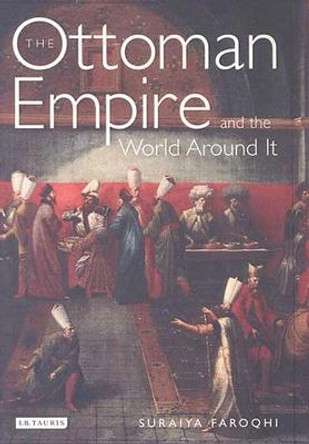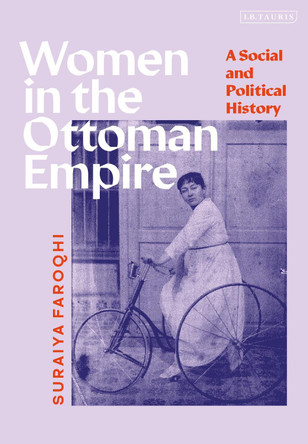Description
A comparative social history between the two great world empires of the Ottomans and the Mughals
About the Author
Suraiya Faroqhi is a professor of history at Ibn Haldun University, Istanbul, Turkey. Her focus is on Ottoman social history of the early modern period, especially women, artisan production, the use of objects as historical sources, as well as urban life and cross-cultural linkages, her most recent publications are, A Cultural History of the Ottomans: The Imperial Elite and its Artefacts ( I. B. Tauris, 2016), and The Ottoman and Mughal Empires: Social History in the Early Modern World (I.B. Tauris, 2019).
Reviews
This is a carefully wrought and unexpected combination of detailed social study, global systems analysis, critical historiography, and comparative history. An indispensable read for specialists in the field. Summing Up: Essential. Upper-division undergraduates through faculty. * CHOICE *
An extraordinary work of meticulous scholarship and unreservedly recommended for community, college, and university library collections. * Midwest Book Review *
An authoritative and meticulously researched comparison of the early modern world's two most successful 'Islamic' empires. Scholars have been waiting a long time for a book like this, which is not only the first to bring together Ottoman and Mughal history in a systematic way, but does so with a remarkable attentiveness to the concerns of 'history from below'. In short, this book sets the standard for a new kind of comparative, trans-imperial history of early modern Islamic societies. * Professor Giancarlo Casale, University of Minnesota *
This book presents a valuable head-to-head comparison of the two largest and longest-lasting Sunni Muslim empires in world history, which were also contemporaries and, arguably, "frenemies." Never content with battles-and-great-men accounts of history, Suraiya Faroqhi offers a top-to-bottom comparison of the full range of features of Ottoman and Mughal society, from court life to crafts to agriculture to slavery, never forgetting that all these elements changed from the sixteenth through the eighteenth century. Her prose is always lively and engaging, and her familiarity with the latest scholarship on both empires is astonishing. * Jane Hathaway, Arts and Sciences Distinguished Professor, Ohio State University, and author of The Chief Eunuch of the Ottoman Empire: From African Slave to Power-Broker *
What new does Faroqhi's work offer? The answer lies is its focus. Until now, the bulk of the comparative scholarship on these two empires mainly studied the world of the dynasties, statecraft, and aristocracy; in other words, the elite. Faroqhi's book is the first work that foregrounds the analysis of the lives and social conditions of the subject population instead... And this she has achieved brilliantly. * The Medieval History Journal *
An excellent starting point for those who wish to compare aspects of the socio-economic history of the two empires. * International Review of Social History *
If scholars of the early modern Islamic world were asked for a single adjective to describe Suraiya Faroqhi, most might opt for 'indefatigable'. * Journal of Islamic Studies *
Book Information
ISBN 9780755642762
Author Suraiya Faroqhi
Format Paperback
Page Count 384
Imprint I.B. Tauris
Publisher Bloomsbury Publishing PLC
Weight(grams) 540g







